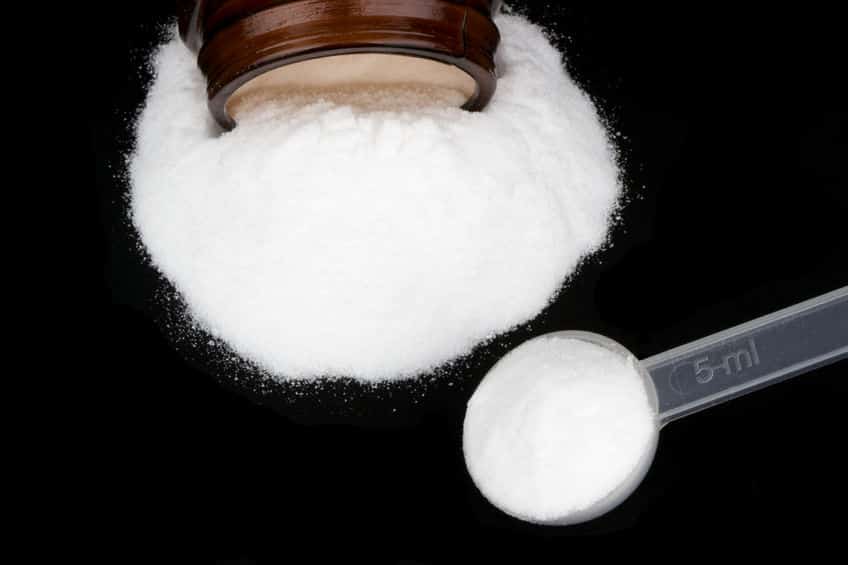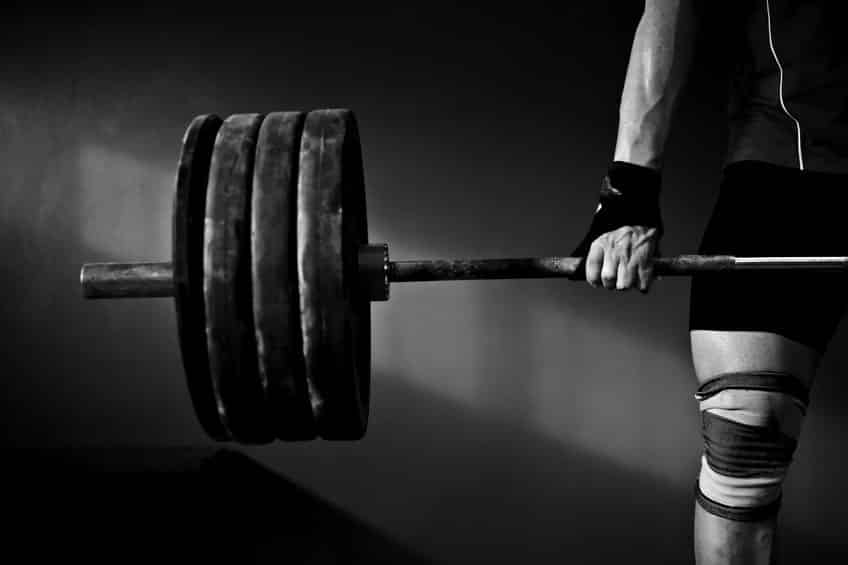Most people who work out regularly want to know how to improve their performance in the gym.
Whether it be to get better results with their physique or get as fit as possible, improving workout performance tends to be a priority for fitness enthusiasts.
In comes pre-workout supplements, the answer to improving one’s physical fitness with each dose!
But does that mean investing in a pre-workout supplement is the right choice for you?
Table of Contents
What are pre-workout supplements?
Pre-workout supplements are water-soluble powders or tablets specifically formulated to improve performance during workouts or exercise.
Generally, though, most pre-workout supplements tend to come in powder form that easily mixes into water or your favorite beverage.
Most of them require the user to ingest the supplement around 30 minutes before a workout to reap the most benefit.
While there is a myriad of ways that pre-workout supplementation can affect your performance in the gym, most ingredients focus on a few pathways:
- Increase energy levels
- Increase mental focus
- Increase blood flow to help muscles recover after bursts of power output
- Increase the efficiency of natural energy production
- Reduce the rate of perceived fatigue levels
What this can amount to is higher levels of strength and endurance while promoting better focus.
Pre-workouts aim to reduce performance drops during the workout so you can finish just as well as you start.
What are the common pre-workout ingredients?
While there are hundreds of different ingredients found in many pre-workout supplements available, there are a few that the most reputable products include.
While this list isn’t exhaustive, it’ll give you a good idea of whether or not a pre-workout holds to its claims to boost your workout performance.
1. Caffeine

Caffeine is the epitome of pre-workout energy enhancement.
It’s been studied in a multitude of ways. It can provide the user with: increase anaerobic work capacity (1), increased power output (2), a lower rate of perceived fatigue (3), and the ability to increase workout volume (4).
Many pre-workouts feature other stimulants, but the majority are unproven compared to Caffeine.
2. Citrulline
Citrulline is an amino acid that can improve blood flow and provides other effects beneficial for workout performance.
While it’s found naturally in some foods, like Watermelon, it can’t be consumed at the optimal amounts from food alone.
Citrulline users can benefit from increased nitric oxide production (5), a decreased rate of perceived fatigue, and reducing soreness from training (6).
Many of these benefits are due to the increase in blood flow and nitric oxide overall, which other ingredients may be able to do as well.
Other common ingredients used for nitric oxide production include Nitrates and Ornithine.
Still, Citrulline is the ingredient proven by more research for its role in improving exercise performance.

3. Nootropics
Yes, we know that Nootropics aren’t a singular ingredient.
With the many options for nootropics available on the market, many pre-workout supplements feature different ingredients to separate themselves from the pack while still providing the same benefits.
The one Nootropic that shows promise with acutely improving exercise performance is Alpha-GPC.
It can raise power output (7) and reduce the rate of cognitive decline (8), just like other popular Nootropic ingredients.
While your pre-workout doesn’t have to feature Alpha-GPC, it should include a Nootropic for the sake of improving focus during your workout.
Other common ingredients include Huperzine A and Acetyl-L-Carnitine.
4. Creatine
Creatine is found in many pre-workouts, but the fun is that dosing is not time-dependant with this ingredient.
The benefits are found with any dosing schedule, as long as you are taking it daily.
It is included in pre-workouts for the sake of ease of getting all of your ergogenic aids in at once.
Creatine can improve strength levels and power output (9), increase lean mass levels (10), reduce levels of fatigue (11), and increase glycogen synthesis and storage (12).
Put, if you are looking to improve your workout performance, Creatine is your #1 priority, although it doesn’t have to be featured in your pre-workout.

5. Beta-Alanine
Just like Creatine, Beta-Alanine isn’t dependant on dosing within a certain timeframe around your workout.
Instead, it builds up in your system over time and produces results from any daily dosing schedule, just like Creatine.
Beta-Alanine does for endurance what Creatine does for strength. It improves muscular endurance (13), improves time to fatigue (14), and can even help improve body composition (15).
Again, like Creatine, you don’t need Beta-Alanine in a pre-workout for it to be effective. It’s just the easiest way to ensure you are getting your daily dose.
Tons of other ingredients may provide benefits under certain circumstances. However, the ingredients we’ve listed here are essentially universally effective for workout performance.
Other notable ingredients include:
- Branched Chain Amino Acids (BCAAs) – useful if you train in a fasted state. Otherwise, unnecessary.
- Betaine – a newer compound that isn’t quite as proven as Creatine or Beta-Alanine, but may provide some of the same benefits.
- Vitamins & Minerals – if you are eating a nutritious diet or take a multivitamin, the pre-workout dosing of these won’t provide much benefit, if any.
Should I take pre-workout supplements? Is it safe?
With all of the data piling up on the efficacy of pre-workouts and their ability to improve your workout performance, you are undoubtedly thinking about investing in one yourself.
But, fitness tends to be a healthful journey, so it’s not worth improving fitness performance while risking one’s health.
So, are pre-workouts safe?
The short answer is Yes. If you stick with high-quality brands and products that utilize ingredients that we’ve discussed in this article, you are ingesting highly-researched ingredients that have proven safety records.
However, shady companies out there spike their supplements with untested and sometimes even illegal ingredients to boost your workout performance.
It’s in your best interest to do your research on the ingredient profile of your chosen product before using it to stay on the safe side!
When should I take pre-workout supplements?

As mentioned earlier, most pre-workouts are best used within 30 minutes of an upcoming workout.
This allows ample digestion time, so the ingredients become active in your system.
Another thing to note is that most pre-workout supplements work best on an empty or near-empty stomach.
While this doesn’t mean you need to avoid eating for hours before your workout, it’s a good idea to only consume a small meal about 30 minutes to 1 hour before you take your pre-workout.
Other things to look out for
While it’s always a good sign when a pre-workout contains high-quality ingredients backed by research, it’s still important to note a few more things to judge whether or not it is worth the purchase.
1. Dosage
At this point, you know that Creatine is one of the most effective compounds in the supplement industry.
However, you have to understand that Creatine requires around 5g to be dosed daily to build up and maintain Creatine stores in your muscles effectively.
If you aren’t consuming this amount, you aren’t reaping the full benefits.
So, it’s obvious that you need to pick a pre-workout that contains around 5g of Creatine per dose if that supplement is your only daily source of Creatine.
The same holds for any effective ingredient: the supplement needs to contain the optimal dose or not see the results properly.
Before purchasing a pre-workout, make sure it contains the right amounts of the ingredients that are most important to you.
2. Proprietary blends
Ah, proprietary blends…the “top-secret” formula hiding labeling tool that hides the dose of individual ingredients from the user.
If a supplement lists a proprietary blend, you have no real way to know whether you are taking the optimal amounts of each ingredient.
How do you know if a pre-workout has a proprietary blend?
It’s simple: if you see a group of ingredients with their total weight listed as one instead of individually, you are looking at a proprietary blend.
For example, a “Muscle-Boosting Matrix” might contain 5 total grams of Creatine, Beta-Alanine, and Citrulline.
This does nothing to tell you the doses of each ingredient, rendering a proper judgment of the product impossible.
It’s best to avoid proprietary blends when possible.
3. When to take it
Some pre-workouts have interesting dosing protocols. While the majority will be used within 30 minutes of starting a workout, some may be different.
A pre-workout might also work as an Intra-Workout, splitting the dose into two separate times: one 30 minutes before a workout and in the middle of a workout.
Regardless of the timing requirements, you have to choose a product that fits your schedule.
Using a pre-workout that requires dosing 45 minutes before a workout halfway through a workout will not be effective. The timing is important when it comes to ingredients like Caffeine and Citrulline.
This means you have to choose a product that fits your lifestyle.
4. Sleeping patterns
Stimulants, like Caffeine, are great for boosting exercise performance. That theory isn’t really up for debate.
However, Caffeine and other similar substances tend to make falling asleep a hassle when ingested too close to bedtime.
For this reason, it’s best to avoid stimulant-based pre-workouts if you train within a few hours of going to sleep.
You probably know your Caffeine tolerance better than us, so use your experience when looking at pre-workouts.
If you train late in the afternoon and Caffeine keeps you awake at night, pick a product that doesn’t include stimulants.
5. Cycling
Should pre-workout supplements be cycled?
This question isn’t possible to answer without knowing the ingredient profile.
While most ingredients are more useful over time, like Creatine and Beta-Alanine, things like Caffeine build up a tolerance which can lower the effectiveness.
The best thing to do is only to use stimulants before workouts.
Unless you are training every single day, that gives your body ample time to resensitize to Caffeine or other stimulants, meaning that cycling off a pre-workout supplement isn’t necessary.
6. Inactive Ingredients
Many pre-workouts contain sweeteners and colors. Whether they are artificial or natural depends on the specific product.
If you have sensitivities or allergies to these kinds of ingredients, you need to investigate the inactive ingredients in your chosen pre-workout.
These tend to be left of the Nutrition Facts label but are usually listed right below or beside it.
FAQs
Is pre-workout bad for kidneys?
Unless the pre-workout contains untested and unproven ingredients, there is little risk of a kidney complication from using a pre-workout supplement.
It’s always best to ensure you stay hydrated to avoid any unnecessary strain on your kidneys, regardless of pre-workout supplementation.
Is pre-workout bad for your heart?
Again, no ingredients commonly found in high-quality supplements are a major risk for the user’s heart.
It’s best to check with your doctor if you have any concerns regarding supplementation of any kind.
Does pre-workout make you stronger?

Ingredients like Caffeine can acutely improve the user’s strength levels, while ingredients like Creatine can improve strength levels over time.
If the supplement is well-designed, strength levels will likely increase with regular usage.
Is it good to take pre-workout on an empty stomach?
Too much food in your digestive tract will slow, or hinder, the absorption of ingredients from your pre-workout.
While this doesn’t mean you shouldn’t eat anything for hours before your workout, it is best to only consume a light meal about 30 minutes to 1 hour before consuming your supplement to improve efficacy.
How long does pre-workout last?
This is impossible to answer without knowing what the user has eaten for the day and the specific ingredients and doses of each ingredient in the pre-workout supplement.
Most users note a decline in energy levels around 1-3 hours after using a pre-workout.
What ingredient in pre-workout gives you energy?
There are many ingredients used for this purpose, but the main one is Caffeine. Yohimbe is common in some pre-workout supplements as well.
There are hundreds of designer stimulants new to the industry and lack a history of efficacy and safety testing, so they are best to avoid.
What ingredient in pre-workout makes you focus?
Nootropics are the wide-reaching category of ingredients that improve a user’s focus. Things like Alpha GPC and Acetyl-L-Carnitine are commonly found in pre-workouts.
Things like Caffeine can also improve a user’s focus, even if that isn’t the main function of the ingredient.
What ingredient in pre-workout makes you itch?
High doses of Beta-Alanine can result in Paresthesia, which is a harmless side effect of Beta-Alanine ingestion.
This can be reduced using a sustained-release Beta-Alanine or taking the ingredient in smaller doses throughout the day.
High doses of Niacin can also cause a similar sensation, known as a Niacin flush. Again, this tends to be a harmless side effect of dosing.
Should you be cycling your pre-workout?
Without knowing the exact ingredient profile, this is impossible to answer.
However, ingredients like Caffeine can lead to tolerance issues, making them less effective over time.
The best idea is to ensure you aren’t training every single day and you are limiting your Caffeine intake to the pre-workout only. This gives your body plenty of time to reset and become sensitive to Caffeine again.
The Bottom Line
pre-workouts are very popular for a good reason. They are highly effective and boosting exercise performance, leading to a myriad of overall health and physique improvements.
While it may seem impossible to pick the right pre-workout, this article gives you the framework you need to pick one that contains optimal ingredients at optimal doses, ensuring you get results from your hard-earned money!
With the thousands of supplements on the market that do little to affect the user, it’s a good idea to invest in a pre-workout is one of your staples since they are proven effective at what they say they can do, something that many other supplements can’t do!
References
(1) http://www.ncbi.nlm.nih.gov/pubmed/16540848
(2) http://www.ncbi.nlm.nih.gov/pubmed/22569090
(3) http://www.ncbi.nlm.nih.gov/pubmed/21605608
(4) http://www.ncbi.nlm.nih.gov/pubmed/21157384
(5) http://www.ncbi.nlm.nih.gov/pubmed/21067832
(6) http://www.ncbi.nlm.nih.gov/pubmed/20386132
(7) http://www.jissn.com/content/5/S1/P15
(8) http://www.ncbi.nlm.nih.gov/pubmed/12637119
(9) http://www.ncbi.nlm.nih.gov/pubmed/14636102
(10) http://www.ncbi.nlm.nih.gov/pubmed/20026378
(11) http://www.ncbi.nlm.nih.gov/pubmed/23800565
(12) http://www.ncbi.nlm.nih.gov/pubmed/14507259
(13) http://www.ncbi.nlm.nih.gov/pubmed/17136505
(14) http://www.ncbi.nlm.nih.gov/pubmed/19083385
(15) http://www.ncbi.nlm.nih.gov/pubmed/21659893
